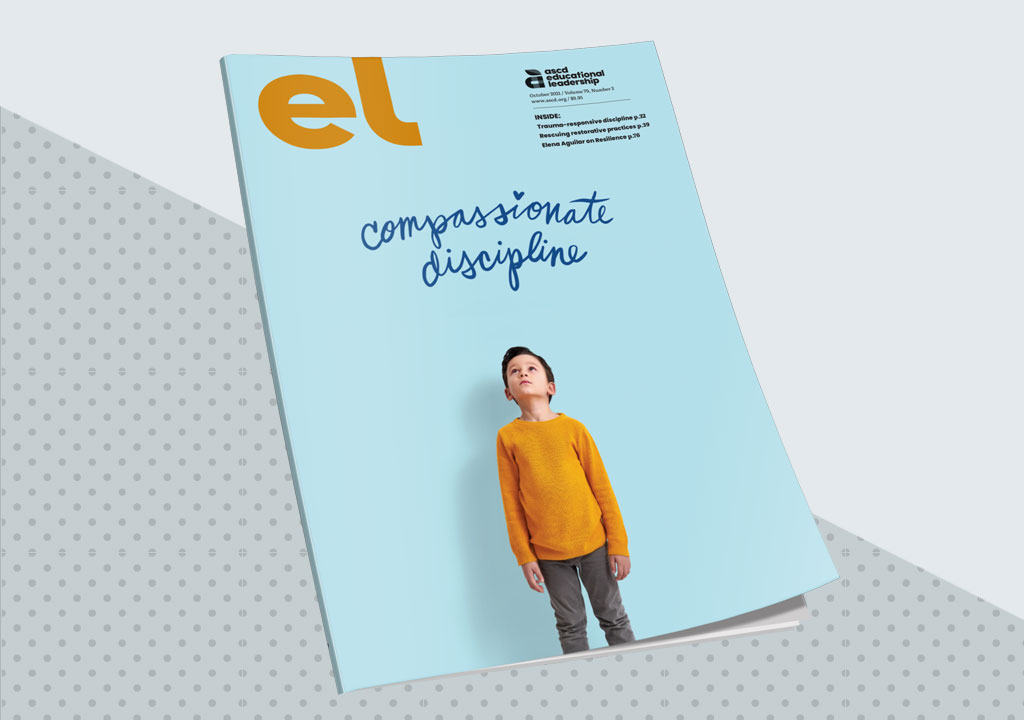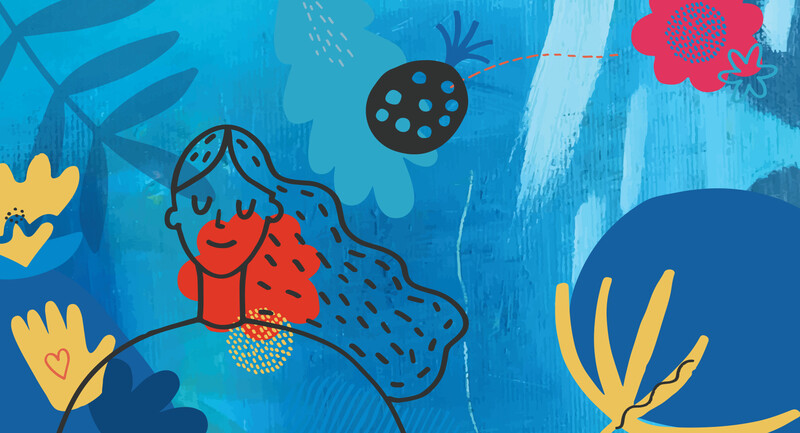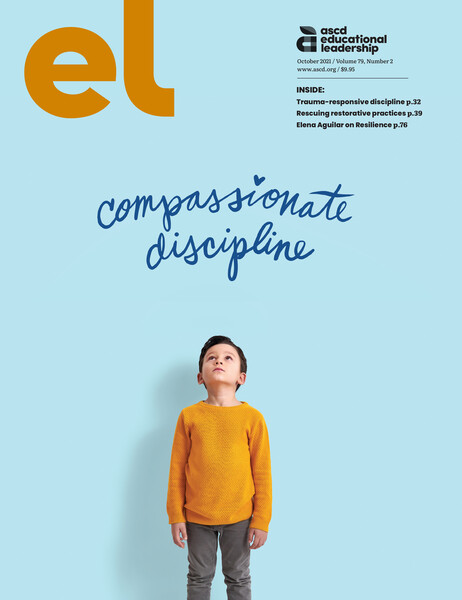Relating to someone with compassion, says the mindfulness teacher Pema Chödrön, "means not shutting down on that person, which means, first of all, not shutting down on ourselves." Given our tendency to want to rush to judgment and turn away from challenging experiences, she adds, this "can be a pretty tall order."
Tall order or not, compassion seems like an important quality for all of us to work on this school year, when so many students and educators are dealing with stress, fatigue, and trauma stemming from the pandemic. It is central, certainly, to the whole child-whole educator vision of making schools more humane and more responsive places—places where students and faculty feel welcome, safe, and supported. As schools work to re-create themselves this year, that vision has probably never been more relevant.
Fittingly, this issue of Educational Leadership is all about "Compassionate Discipline," focusing on the role of compassion in classroom management and school disciplinary systems. In this sense, it reflects a growing recognition of the need to shift away, to the largest extent possible, from long-prevailing (and often instinctive) punitive or exclusionary discipline practices, which have a legacy of entrenching pain and alienation. As the articles in this issue show, there are alternative, well-supported approaches to responding to student behavioral issues—approaches that are premised on "not shutting down" on students or your values as an educator.
However, the educator-authors featured in this issue also echo Chödrön's caution that relating to others with genuine compassion isn't easy, especially in challenging situations. Compassionate discipline, as it's presented here, isn't just about trying to be "nicer" or more accepting. It's hard work, predicated on proactive planning, intentional shifts in practice, and self-reflection. It entails several key components that you might consider as you read or discuss the articles in this issue.
Changing beliefs about behavior. Several of the authors note the importance of understanding that poor student behavior is often the expression of something else—perhaps trauma, difficulties at home, or even a reaction to something that's amiss in the classroom environment. This conceptual shift is key in helping educators respond to acting-out students with greater empathy and take steps to address their underlying needs, as opposed to making things worse through added blame or stigmatization.
High-level adult SEL skills. A closely related takeaway is that, to practice compassionate discipline, educators must have space to develop their own social-emotional capacities. They need to be able to react calmly to confrontation, avoid escalating already-tense situations, know their own triggers and biases, and not get "hijacked by emotions" or faulty interpretations. They need to lean toward protecting students' dignity and offering a safe space, while maintaining boundaries and order. Such practices can provide students with "developmental experiences that help them self-regulate."
An emphasis on teaching behavior. Compassionate discipline is not, however, about accepting poor behavior and letting students off the hook. Instead, there's a strong emphasis on helping students understand the consequences of their actions and the importance of being accountable. Educators must actively teach and model self-regulation and care of community, aspects often missing from punitive or rigid compliance-driven practices.
Relationship building. To practice more supportive discipline, educators need to get to know students better, to listen better, and to bridge the gap between "their needs and our authority." Relationship building can provide key insights and build trust. It's also another form of modeling—of helping students grow through healing interactions.
Systemic support. Several authors stress that positive or restorative discipline practices are difficult to sustain on the strength of individual good intentions. They work best as whole-school efforts, built on targeted training, collaboration, and infrastructural support. As with implementing a new curriculum, making the shift to more compassionate behavior support requires a "different framework for understanding."







